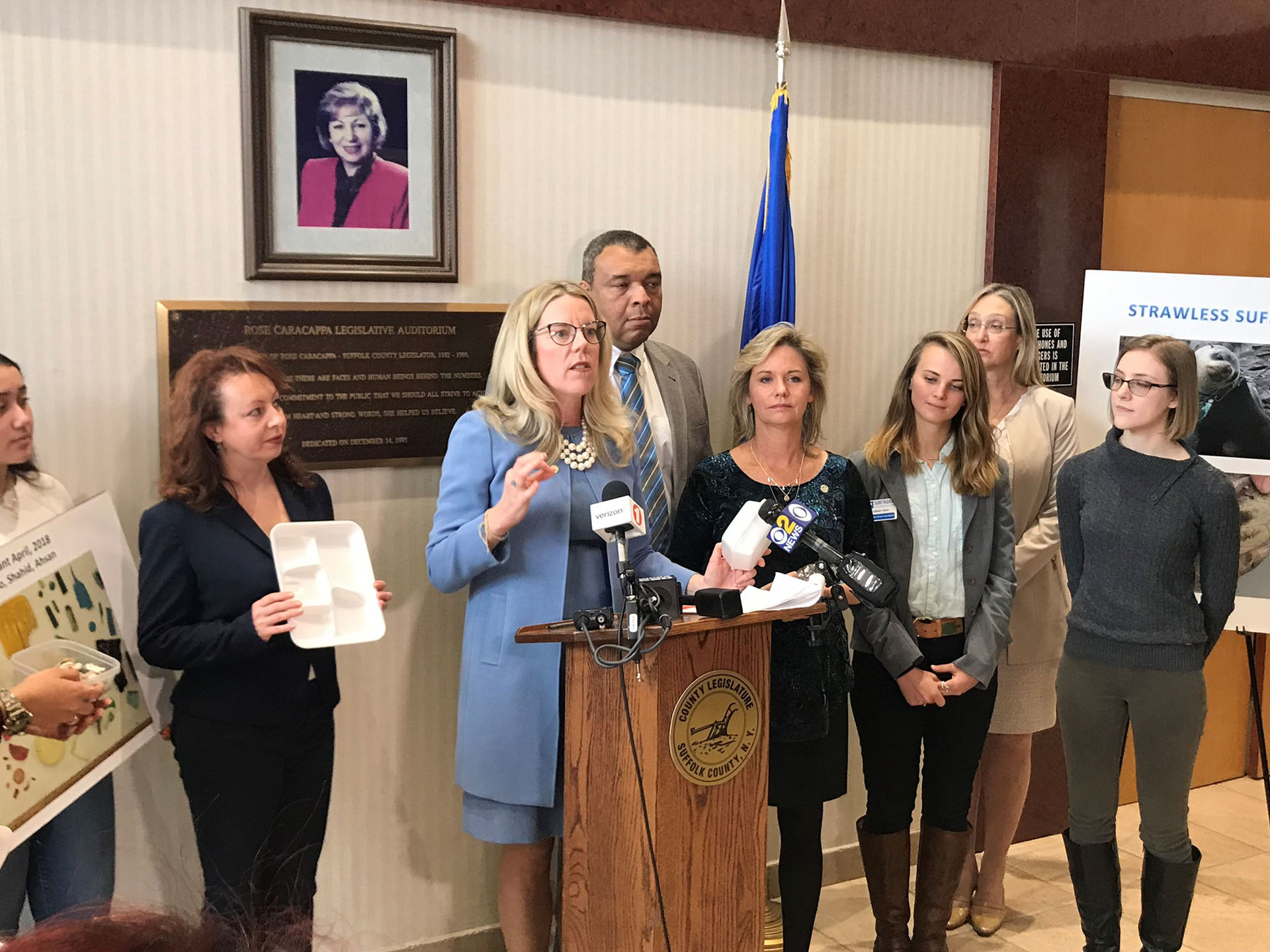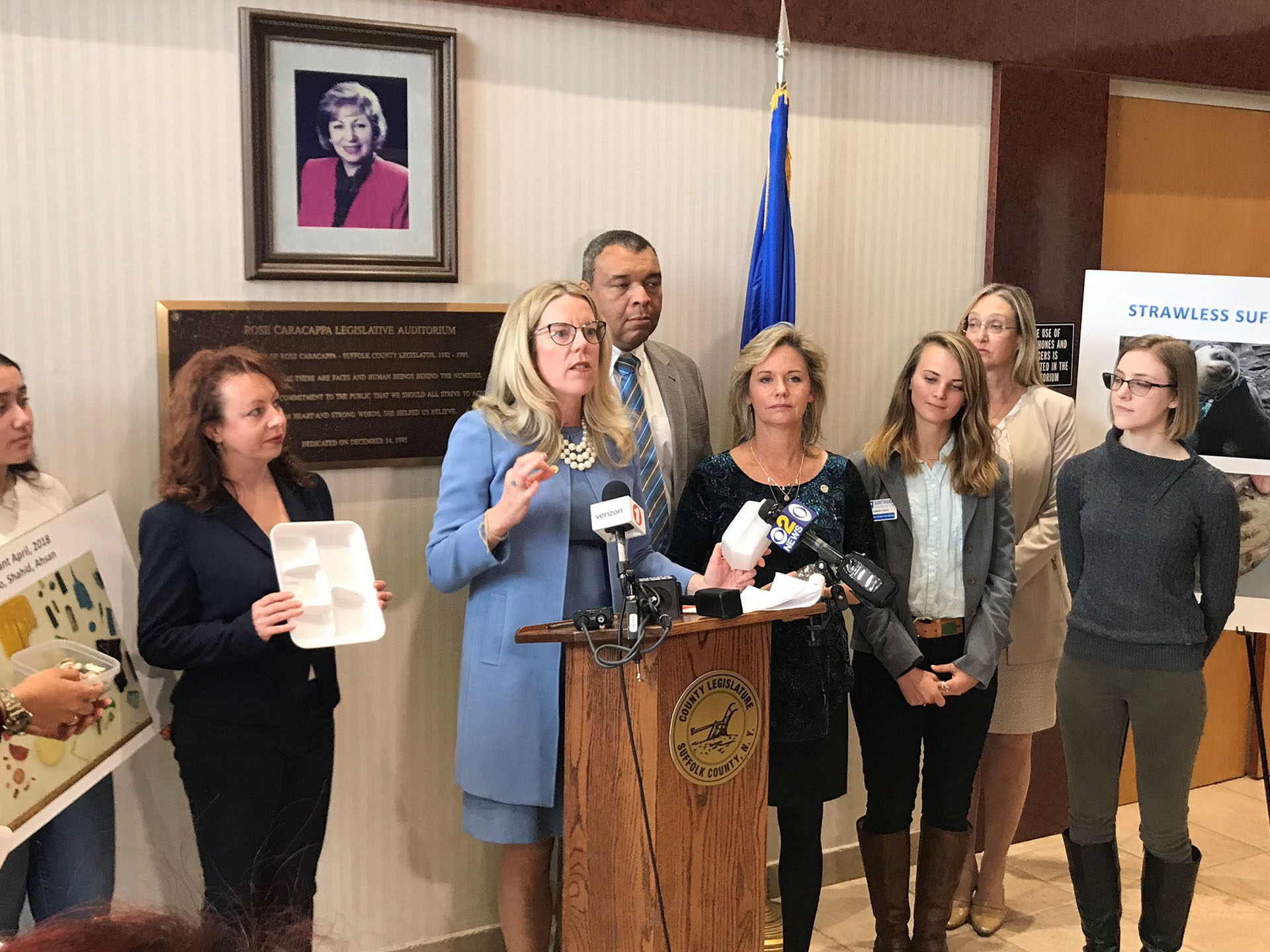County Also Looking To Ban Plastics


Suffolk County Legislator Kara Hahn is pushing a package of policy initiatives intended to reduce plastic waste.
Through four separate bills, the Single-Use Plastic Reduction Task Force hopes to codify the county’s commitment to sustainability by reducing unnecessary and excessive single-use products comprised of non-biodegradable chemical compounds from entering the waste stream.
The legislation would ban the use polystyrene food service products and sale of polystyrene packaging; require restaurants to provide biodegradable straws and stirrers by request only while disallowing plastic ones; prohibit county concessionaires from distributing single-use cups, utensils, or beverage straws made from non-biodegradable substances; and require the county to install water fountains designed to allow bottle filling at most of its facilities.
“The vast and growing scale of the worldwide plastics problem has become a growing threat to human health,” Hahn said. “We as a county have worked, in some cases decades, to address the challenges posed by these dangerous pollutants. Now, with the backing of science and evolving public awareness, support for policies limiting and banning substances that threaten human health and our environment has reached a turning point. It’s time to take a stand against this growing threat.”
The bills make accommodations for people with disabilities whose medical conditions necessitate use of plastic straws through the Americans with Disabilities Act, and exempts polystyrene items used to store uncooked eggs, raw meat, pork, fish, seafood, and poultry.
“My students and I have found a significant amount of plastic in the salt marshes we study,” said Dr. Rebecca Grella, a research scientist and educator in the Brentwood Union Free School District. “We have plastic from the 1990s as evidence from the bottle caps we are finding. There is a tremendous amount of plastic in these marshes and we need a solution.”
Hahn said in recent years, minute micro-plastics and fibers measuring the width of a human hair or far less have been found in an extraordinary range of products, such as honey and sugar, shellfish, bottled and tap water, beer, processed foods, table salt, and soft drinks, which means that just like sea turtles and birds, humans are ingesting plastic virtually every day.
“Each one of us makes a difference with our daily actions,” said Beth Fiteni, director of Green Inside and Out, a Long Island-based nonprofit organization that promotes living environmentally consciously. “While no one step is the whole solution to preventing plastic pollution, these proactive steps being considered by the Suffolk County Legislature show strong leadership toward reducing waste and protecting our oceans, rivers, and lakes.”
desiree@indyeastend.com



